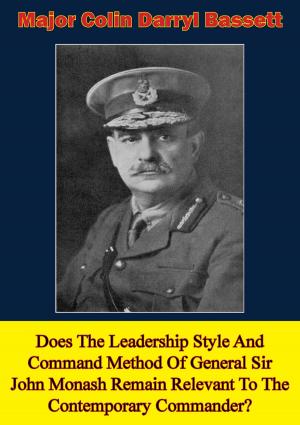Earl Kitchener Of Khartoum: The Story Of His Life [Illustrated Edition]
Nonfiction, History, Military, World War I, Germany, British| Author: | Walter Jerrold | ISBN: | 9781786251572 |
| Publisher: | Verdun Press | Publication: | November 6, 2015 |
| Imprint: | Verdun Press | Language: | English |
| Author: | Walter Jerrold |
| ISBN: | 9781786251572 |
| Publisher: | Verdun Press |
| Publication: | November 6, 2015 |
| Imprint: | Verdun Press |
| Language: | English |
Includes 8 illustrations.
Field Marshal Horatio Kitchener, 1st Earl of Khartoum still stands as one of the great generals produced by Britain. His career was marked by great deeds, and great controversies. The son of a military family, he trained at the Royal Military Academy in Woolwich before his first trip to the Middle East surveying in Palestine in 1874. He joined the newly formed Egyptian Army in 1883, which was in reality controlled by the British, and embarked on campaign in Sudan. He was part of the failed Gordon relief expedition in 1884, and learned a great deal of the area, its people and the military problems of fighting in the arid desert. By 1892 he was Sirdar, head of the Egyptian army, he was given command of the expedition to crush the self-appointed Mahdi who had taken control of large parts of Sudan. It was during this campaign that he gained public and Royal attention after the victories of Atbara and Omdurman that crushed the revolt of the Mahdi.
He served as Lord Robert’s second in command during the Boer War and served with distinction and much success, although his institution of concentration camps caused great outrage and awful civilian distress. Perhaps his greatest services were during the First World War, as Secretary of State for War, fashioning a great civilian army to fight the militarised hordes of Germany in France and Flanders. He may have gained even greater fame, but was tragically lost at sea when the H.M.S. Hampshire was torpedoed in 1916.
An excellent short biography.
Includes 8 illustrations.
Field Marshal Horatio Kitchener, 1st Earl of Khartoum still stands as one of the great generals produced by Britain. His career was marked by great deeds, and great controversies. The son of a military family, he trained at the Royal Military Academy in Woolwich before his first trip to the Middle East surveying in Palestine in 1874. He joined the newly formed Egyptian Army in 1883, which was in reality controlled by the British, and embarked on campaign in Sudan. He was part of the failed Gordon relief expedition in 1884, and learned a great deal of the area, its people and the military problems of fighting in the arid desert. By 1892 he was Sirdar, head of the Egyptian army, he was given command of the expedition to crush the self-appointed Mahdi who had taken control of large parts of Sudan. It was during this campaign that he gained public and Royal attention after the victories of Atbara and Omdurman that crushed the revolt of the Mahdi.
He served as Lord Robert’s second in command during the Boer War and served with distinction and much success, although his institution of concentration camps caused great outrage and awful civilian distress. Perhaps his greatest services were during the First World War, as Secretary of State for War, fashioning a great civilian army to fight the militarised hordes of Germany in France and Flanders. He may have gained even greater fame, but was tragically lost at sea when the H.M.S. Hampshire was torpedoed in 1916.
An excellent short biography.
![Cover of the book Earl Kitchener Of Khartoum: The Story Of His Life [Illustrated Edition] by Walter Jerrold, Verdun Press](https://www.kuoky.com/images/2015/november/500x500/9781786251572-Wrdz_500x.jpg)





![Cover of the book Marines In World War II - The Guadalcanal Campaign [Illustrated Edition] by Walter Jerrold](https://www.kuoky.com/images/2014/august/300x300/9781782892809-WOFP_300x.jpg)
![Cover of the book T. E. Lawrence: Theorist And Campaign Planner [Illustrated Edition] by Walter Jerrold](https://www.kuoky.com/images/2014/august/300x300/9781782894308-l8rb_300x.jpg)



![Cover of the book Analysis Of Deep Attack Operations: Operation Bagration, Belorussia, 22 June - 29 August 1944 [Illustrated Edition] by Walter Jerrold](https://www.kuoky.com/images/2014/august/300x300/9781782895459-fPbK_300x.jpg)


![Cover of the book Smith-Dorrien [Illustrated Edition] by Walter Jerrold](https://www.kuoky.com/images/2015/november/300x300/9781786255228-kEY1_300x.jpg)
![Cover of the book Moscow To Stalingrad - Decision In The East [Illustrated Edition] by Walter Jerrold](https://www.kuoky.com/images/2014/august/300x300/9781782893196-Qth3_300x.jpg)